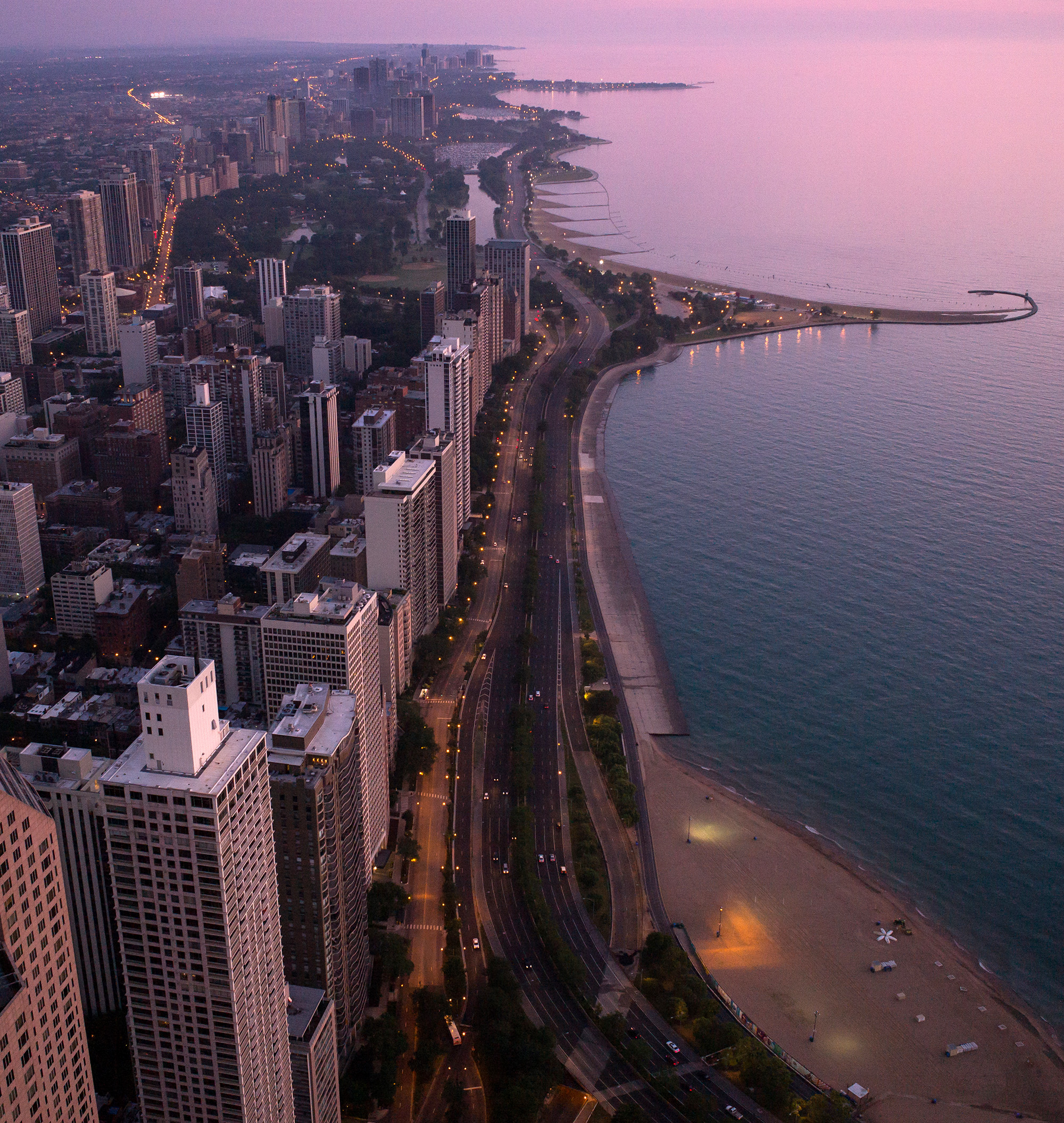NaJei Webster is a program manager at Restore Justice, an organization that advocates for fairness, humanity, and compassion throughout the Illinois criminal, legal, and prison system, with a primary focus on those affected by extreme sentences. Her first role at Restore Justice was as an apprentice in the Future Leaders Apprenticeship Program, which is an opportunity for formerly incarcerated individuals to develop leadership skills so that they can build careers in the nonprofit sector, advancing social justice and criminal system reform. Webster returned home in 2021 after serving eight and a half years in prison. She had received a twenty-one-year sentence for an accountability conviction and firearm enhancement; she came home early because of her work as a seamstress and credits she earned while in prison.
Webster was incarcerated with Tewkunzi Green. In October 2021, Inquest founding editor Premal Dharia spoke with Green over Zoom; her words were published in Inquest on November 16, 2021. Reflecting on her own experience as a survivor, and her work with survivors of interpersonal and state violence after she was released from prison, Green reminded us all of how our carceral system compounds pain and trauma and adds new layers of harm. “So many of us are surviving—domestic abuse, harm in our families, relationships and communities, rejection, abandonment, and then also surviving mass incarceration. We are surviving everywhere.” Green urged the importance of healing, leaving us with this reflection on her own journey: “I’m not going to be invisible any longer. I’ve been invisible all my life. I’m proud now to make a difference. I’m proud to stand up and say, ‘I am visible now.’”
On February 20, 2022, Green unexpectedly passed away.
On February 2, 2023, Dharia spoke with Webster over Zoom. Portions of that conversation have been edited and condensed for clarity to form the below narrative as told by Webster. This narrative is published in part to honor the life and legacy of Tewkunzi Green. May her memory be a blessing.
Tewkunzi Green was a friend of mine. So when I got the call about this conversation, I was like, of course.
I met Tewkunzi when I was working in leisure time services (LTS)—basically, the gym. I was overseeing the equipment, passing it out and stuff like that. And Tewkunzi was really athletic. She loved playing all the sports. So that’s how I met her. She was just always really nice. We would do basketball tournaments, softball tournaments, all kinds of things like that. Then I ended up getting moved onto a housing unit with her, so then we hung around the same people and saw each other all the time. She was a bright, spirited person. She was just so sweet, and so uplifting.
When she won clemency, which commuted her sentence to time served, it gave us hope, because we hadn’t heard of a lot of women winning clemency. Plus, it’s different seeing someone win clemency who is your friend, when you had previously just felt it was something that happened for other people, not for you. By the time the decision was announced, I had been transferred to Decatur Correctional Center, so I wasn’t able to celebrate with her in person. But it was something that all of us felt, all of us women. It inspired all of us. Everyone felt like they could also have a future outside of prison. All the women I was in there with, they were in there doing the work, trying to rehabilitate themselves but also helping others, with little to no resources. I had a friend, Sandra Brown, who was tutoring, teaching people how to use the computer. She even taught me how to give speeches in Toastmasters.
I came home later than Tewkunzi, on September 15, 2021. Within two weeks I started working as a teacher’s assistant at a daycare for toddlers. I loved the kids. At the daycare they called me the toddler whisperer. I had this connection with the kids. In the mornings the kids would be flipping out and then I would walk up and be like, Come on, come with me, and they would just . . . stop crying. Even I was like, What is this?
Those kids were a vital piece of my healing when I came home. If I knew nothing else, I knew that these kids loved me so much. And it made me a little softer. It melted the ice that prison had formed. But it was also very draining work and after a while I just couldn’t keep doing it. I hope the kids read this someday and know that I left to take care of myself and not because they drove me nuts.
More from our decarceral brainstorm
Every week, Inquest aims to bring you insights from people thinking through and working for a world without mass incarceration.
Sign up for our newsletter for the latest.
Newsletter
After I left the daycare, I was given the opportunity to apprentice at Restore Justice, with a program called Future Leaders Apprenticeship Program (FLAP). It is usually for people who have done a substantial amount of time in prison—twenty years or more. I had not done that much time, but they made an exception because they had never had a woman in the program.
It was an amazing apprenticeship. I met so many incredible people. As part of it, I had the opportunity to start my own volunteer program. I came up with the idea of a volunteer program for people who have done substantial amounts of time and have fewer than five years left to do, to help them get reacclimated before they come home. They’re partnered with a volunteer who can help them anticipate their needs, because they are facing a really hard transition. I was lucky to have people in my corner who helped me—but I still struggled with some things. People couldn’t always understand because they’d never done time. So even though I had the help, I still didn’t always have the help that I needed—where I wouldn’t have to sit and explain why, for example, I have certain feelings or reactions to certain things.
In October Restore Justice promoted me to Program Manager. I now manage FLAP, the program that I was in. The best part about it is that I’ve been in there, so I know what’s needed. I understand how scary it is. We’re offering help that doesn’t require that you come and tell your deepest, darkest secret of what you went through in prison. We ain’t got to talk about it. I just want to help, I don’t care what you did, and I don’t care who they say you are. What do you need? Let’s just forget about backgrounds, and the icky parts of everybody’s story, and let’s just help them because they’re human, and they need help.
Helping others has also helped me to put my life back together. I just got custody of my younger brother. He’s sixteen but he’s always been like my baby. We have always had an amazing relationship. Even when I was incarcerated, we never lost contact. But it’s also not the same. The worst part of prison is being away from your family. You’re in a place where there’s all these people, and you do come across people who seem to care. But it’s a really scary place, and you’re navigating all of it without your family. To me, that was the worst punishment. Aside from prison being shitty.
I think they do more in the women’s prison than in the men’s to keep families together. But you have to have kids for that. I don’t have kids, but having my little brother there would have done wonders for me—and for him, I think. I realized how much of an impact I had on people. Not only was I affected, but removing me from people’s lives really affected them, which in turn affected me. Prison is just horrible for everybody. In the end, no one wins. Everyone loses in the end.
So as soon as I came home, I started working on getting custody of my brother. This April will be the first birthday of his that we’ve spent together since 2012. So we’re excited about that. I know I have to be strong for him. Because nobody else is. He has to see strength somewhere to know what it looks like. At the same time, he’s also been my biggest motivator in life. I felt like I let him down when I left even though I was just a kid. That was my biggest regret in prison. Every act of rehabilitation I’ve ever done has been because of him. I want him to see that he has somebody—and not somebody whose life is in chaos, but somebody who has it together who can help him. I’m a firm believer that I went to prison to save my little brother’s life. And so it’s like, how can I be bitter about that?
I just got an email yesterday that made me so proud of him. When I got custody, he was supposed to be a junior in high school, but for various reasons, they pushed him back to a freshman. He was devastated. We spent two days crying, being angry. Then I told him, This is messed up. It’s gonna be hard, it’s gonna be a lot of work. But we’re just going to push through it, we’re gonna use all that anger. And you’re gonna take that anger out on your schoolwork. I just got an email yesterday stating that, after being at his school a month and a half, they’ve decided to move him up a grade. He is now a sophomore. When I got the email, I texted him, I’m so proud of you. And he told me, I couldn’t have done it without you.
Healing comes in so many forms, and in so many ways, and some people don’t even know what they need healing from. I’ve been on that journey. Before I became incarcerated, I loved driving down Lake Shore Drive. There was just something about the lake. For me, it was like driving was a form of therapy. I used to dream about that. So when I came home, my first time driving down Lake Shore Drive was a big exhale moment. Now I live in Evanston and work downtown, so what do I have to do to get somewhere? Drive down by the lake. Recently, in a moment after leaving work and seeing the sunset over the lake, it hit me that this is what I prayed for. I had been manifesting it in my dreams. Peace.
All of us who’ve been inside have healing to do. There are, like Tewkunzi, so many survivors in prison. And then surviving prison requires its own kind of healing. I think the best advice I can give someone coming home is to focus on yourself, to be patient with yourself. It’s important to keep in mind that everyone is human and some people just don’t understand that it hurts. No one wants to go to prison. Sometimes after doing a lot of time, people come home with a lot of anger and animosity and resentment. It’s not something that you can just fix right away, or just shake off. This is a process and it’s a process that shouldn’t be ignored. But it’s also a process that can be used to help heal others.
Lake Shore Drive, Chicago. / Image: R Boed/flickr

